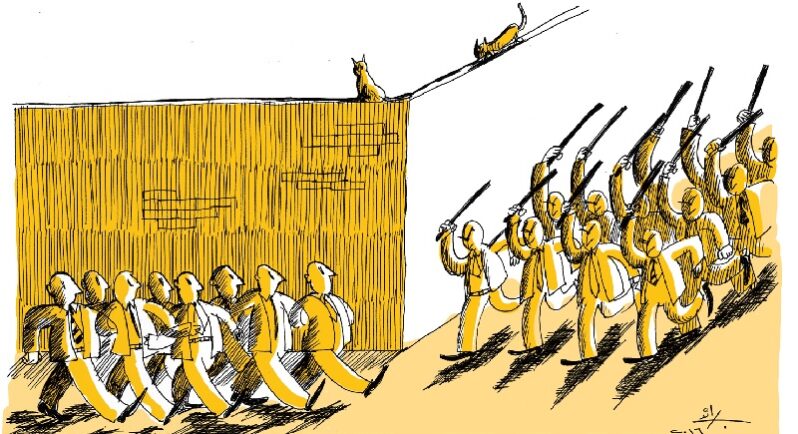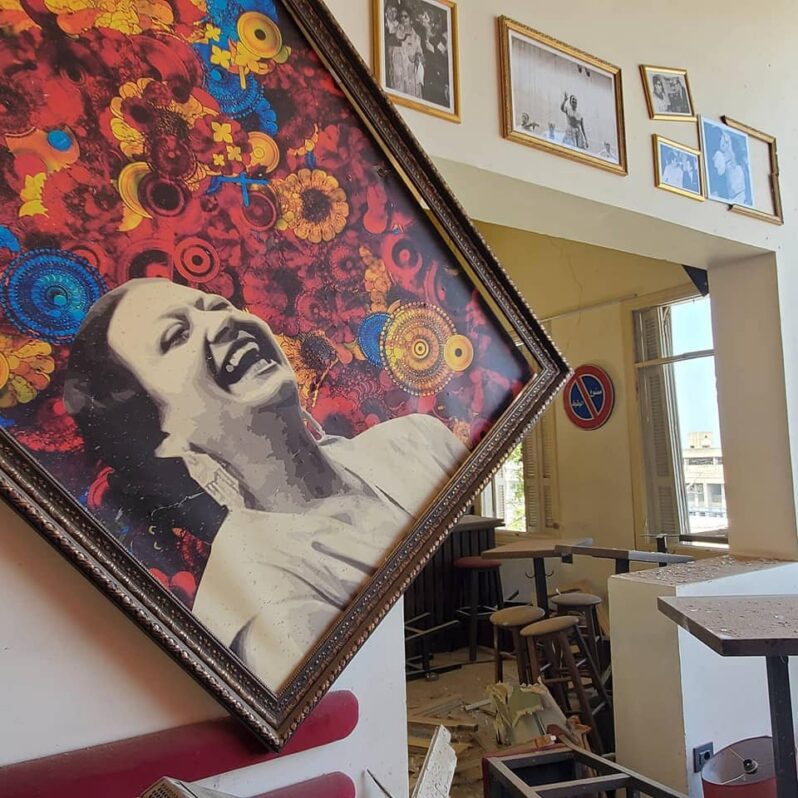Political Self-Enrichment in Jordan: Putting Private Interests Ahead of Public Good

At the beginning of last September, the Jordanian Parliament passed a legal amendment granting its members pensions for life at a level on par with those of government ministers, equalling JD (Jordanian Dinars) 5,000 [US$7,045] per month. The raise has been one of the most controversial laws in the eyes the Jordanian public for numerous reasons. It represents misconduct on the part of parliament for granting privileges. This runs contrary to custom and tradition which dictate that Parliament in session not legislate for itself, but rather for the cohort of parliamentarians of the following election in order to prevent conflict of interests. The controversy has intensified with King Abdullah II’s opposition to the law, in addition to the fact that it comes in the midst of the severe financial crisis that Jordan is currently facing. The passage of the law has opened the gates wide open to contentious political bickering in the context of privileging private interests over public interests, some of which extend to the king himself.
The Story of the Civil Retirement Law and Members of Parliament
The story concerning the Civil Retirement Law and members of Parliament began ahead of the election of the Sixteenth Parliament mid-2010. At the time, the government of Samir Rifai took it upon itself to issue a temporary law (No. 10 of 2010) that amended the Civil Retirement Law (No. 34) of 1959, in the absence of a parliament. This law forbade members of the legislative branch from receiving pensions. The issue remained a matter of give and take between the government and the two houses of Parliament (the Senate and the House of Representatives), until it was settled by the latter on September 11, 2014.[1] The amendments passed stipulated that representatives and senators be granted pensions equivalent to those of ministers, provided they reached the accepted length of service for retirement, i.e., seven years. The decision regarding these privileges provoked the indignation of citizens towards Parliament’s behavior, in light of the fact that it came amidst government austerity measures that increased the financial burdens of ordinary citizens. These measures had been justified on account of the severe financial hardship facing the public budget. One such draft law reported on by the media, would reduce tax breaks and increase tax rates on individual taxpayers.
The King’s Letter to the Prime Minister
On September 15, 2014, a few days after Parliament ratified the [amended] Civil Retirement Law, the king directed a royal letter to the prime minister expressing his disagreement with the amendments and stating the reasons behind his opposition (the king’s approval is required by the Constitution).[2] The king provided two primary reasons. First, that the law is insensitive to the current economic conditions facing Jordan, and therefore violates the principle of equality among Jordanians. The amendment, he argued, is a clear indication that members of the legislature are exploiting their posts to serve their own private ends, without due consideration of the Jordanian people. Second, he said that the draft law was unconstitutional and therefore should be brought before the Constitutional Court – which the king directed the prime minister to do in his letter.
Legal Controversy About the Fate of the Draft Law
If members of Parliament debate the draft law a second time and approve it by a two-thirds majority, it becomes a law. However, if a two-thirds majority is not secured, then the law cannot be debated again in the same parliamentary session. In light of current developments in Jordan, members of Parliament may retract the law on their own in order to avoid a confrontation with the palace, or on account of the pressures they have faced. Dropping the law might be the most realistic and logical solution. Other outcomes might be even more difficult for the House of Representatives. These include dissolution of the House of Representatives or a Constitutional Court review currently sought by the government, deeming the draft law as it currently stands unconstitutional. If the latter were to occur, an awkward burden would be lifted from the executive power, given that a number of members of the House of Representatives deemed the rejection of the draft law that they had passed to be nothing more than a political game to acquire public sympathy at the expense of the House of Representatives. Some described it as a flimsy political farce.[3]
Members of Parliament and the King: A Strained Relationship?
Following the king’s anger over the passing of the law in question, there was speculation about an impending decision to dissolve the House of Representatives. Such a move would sacrifice the house to appease popular anger fueled by worsening economic conditions and directed at the house’s members. It appears, however, that this option is unlikely as it would result in the government’s resignation. It would require either holding another parliamentary election within four months of the date of its dissolution, or the return of the dissolved Parliament.[4] This is to say nothing of the costs and expenses that would be borne by the public treasury, which is currently suffering from a clear financial deficit.
This speculation died out completely after the king indicated that he would not impugn the reputation of the House of Representatives. The House of Representatives had become an easy target for jokes and ridicule on social media and even official media outlets after passing the aforementioned law.
Despite the king’s latter statement, house representatives saw themselves as victims that had been deceived regarding the vote on the retirement law. The prime minister and presidents of the House and Senate might have led the representatives to believe there was a green light for the law to be passed. Some have interpreted the king’s opposition to the law as a reflection of his dissatisfaction with the performance of the members of Parliament. Others, believing that this has all been arranged at the expense of the House of Representatives, were driven to defend their dignity and stand their ground in the face of executive power, and perhaps the king himself, even for the mere sake of bickering.
This position has been expressed on more than one occasion. Online and social media sites picked up an unverified [a story] claiming that during a meeting of several members of the House at Yarmouk University, one of the members (whose name was not mentioned), was insolent toward the king and voiced insults shortly after the king’s reaction to the draft retirement law.[5] If true, this incident reflects the position of a single representative. Other members have expressed in clear terms the discontent of the majority of the representatives with the king’s reaction to the law, some of which may even extend to the person of the king himself.
Subjecting the King’s Income to Tax
Currently, the House of Representatives is debating a draft Income Tax Law. During discussions of one of the articles of the law related to tax breaks -which excuses the king from income tax- one of the House members, Tamer Pino, initiated a proposal to subject the king’s personal income to taxation. In 2014, The king’s income for 2014 was JD828,000 [~US$1.2 Million], out of a total budget for the Royal Court of JD35.752 million [~US$50 Million].. Monies earmarked for total royal expenditures were close to JD36 million, the rough equivalent of half a billion US dollars. The tax proposal was on the basis of considering the king to be a Jordanian citizen and therefore on equal footing with other Jordanian citizens, whose equality before the law is stated in the Constitution. An absolute majority opposed this daring proposal. Some justified their rejection of the proposal on the basis that the king is not in the business of trade to be taxed. Such a proposal, they argued, should not be discussed in Parliament.[6]
It is worth mentioning that excusing the king’s income from taxation is nothing new, but a consistent and conventional matter in all Jordanian tax laws. What is new is that such an issue was raised under the dome of Parliament. Demanding the subjection of the king’s personal income to taxation represents unprecedented boldness among the members of the House of Representatives. It is also noteworthy that the majority of the representatives that supported maintaining the royal tax break did so not on the basis that it was disbursed from the state budget to the king, who is a representative and symbol of the state, but on the basis that he does not work in commerce, and is not a businessman. It follows that the majority’s arguments regarding this “provocative” proposal were technical, devoid of any recognition of the king’s distinctive role. This in itself points to a generally negative inclination towards the matter.
This article is an edited translation from Arabic (1)
This article is an edited translation from Arabic (2)
This article is an edited translation from Arabic (3)
__________
[1] See: “Senate Returns Civil Retirement Law to the House of Representatives”, Petra: Jordan News Agency, January 30, 2014.
[2] See the text of the full letter on King Abdullah’s website: http://kingabdullah.jo/index.php/ar_JO/royalLetters/view/id/346.html.
[3] Representative Hind al Fayez in a statement: “The court coordinated with the presidents of the Senate and the House of Representatives, inviting them Thursday morning shortly before the vote in order to have the proposal stamped by both legislative chambers.” She added, “Unfortunately, the court declined its assurances due to popular pressure to take a position that would make the House of Representatives an object of contention, so that criticism would not be directed toward the court, nor the ministers, nor even the senators!”. Fayez described the creation of the draft law by saying, “this weak farce was at the expense of the House of Representatives, and unfortunately, although we showed good faith towards them, we saw nothing but criticism and insults!”. September 16, 2014;
See: http://www.sawaleif.com/details.aspx?detailsid=126559.
[4] Article 73 of the Jordanian Constitution.
[5] Note that the media and social media did not disclose the identity of the member of Parliament, or the nature of the insults that he stated about the king, and up until now, there has been no legal action against the member in question for the accusation of insulting the king, which has affected a great number of activists who have been referred to State Security Courts; See: http://alhurra-jordan.com/post/56665.
[6]See: “Representatives Reject Subjecting the King’s Income to Taxes”, Al-Sabeel News, September 23, 2014.
[7]



